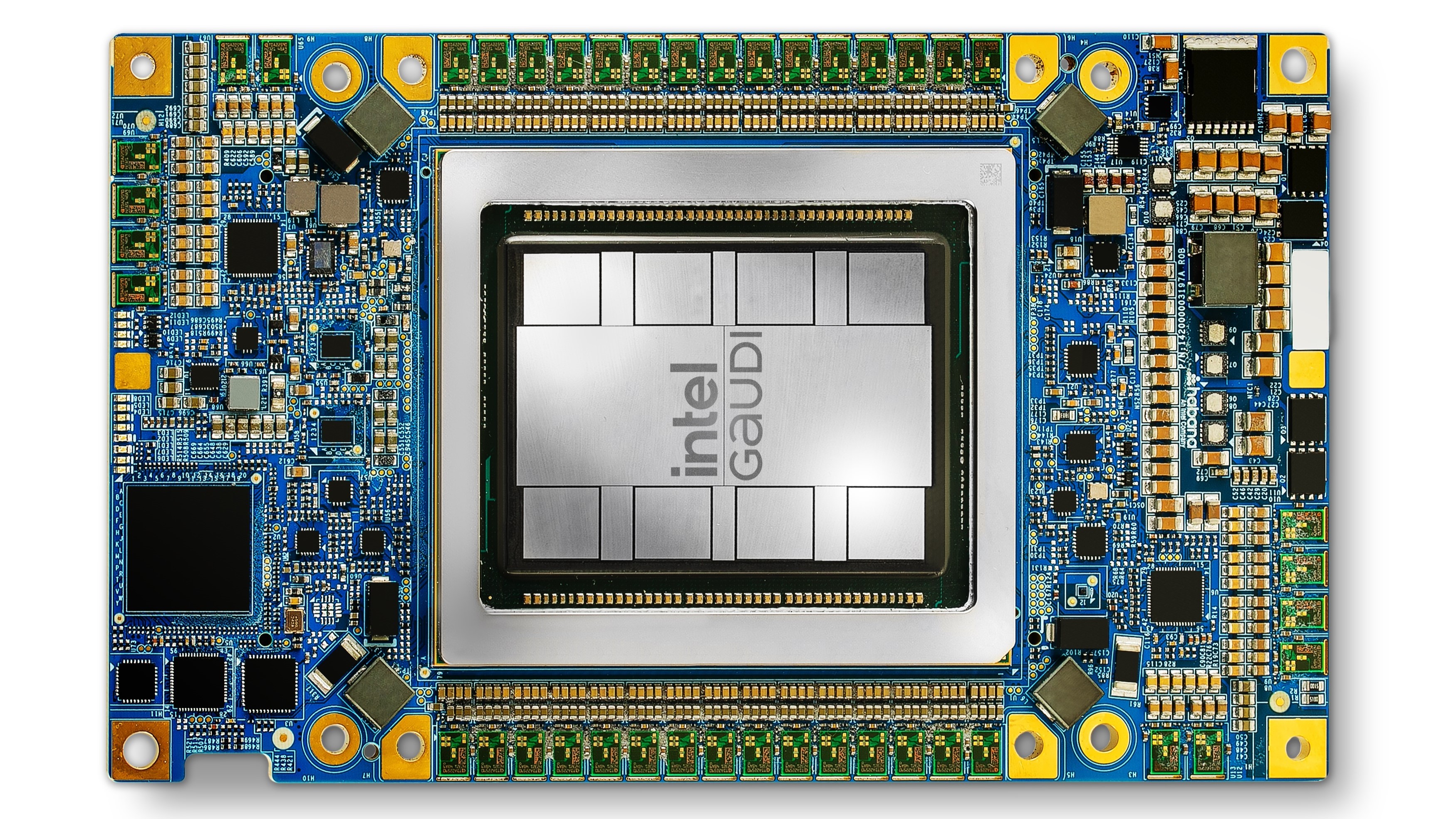
When Intel announced its Gaudi 2 and Gaudi 3 accelerators for AI, it said that the total cost of ownership would be a fraction of that of Nvidia's H100, but never revealed any actual numbers. At the Intel's keynote at Computex 2024 the company finally revealed pricing of its latest AI processors and it appears that eight Gaudi 2 processors on a baseboard will cost less than one Nvidia B200 is rumored to cost.
Intel charges $65,000 per eight Gaudi 2 accelerators on a baseboard and $125,000 per eight Gaudi 3 processors on a baseboard, as shown by our colleague Jim McGregor from Tirias Research. This means that a single Gaudi 2 is priced at around $8,125, whereas a Gaudi 3 costs around $15,650 — of course, when purchased in bulk and with a baseboard. Yet, for large customers buying in huge quantities Intel can certainly make further per-unit discounts.
@intel discloses the Guadi 2 and 3 prices - $65k & $125k respectively. #Computex2024 pic.twitter.com/67H1GdsDJpJune 4, 2024
By contrast, Nvidia's H100 80GB cards cost $30,000 — and more when purchased retail, though these cards offer lower performance than H100 80GB SXM modules. HSBC projects that Nvidia's 'entry-level' next-generation B100 GPU based on the Blackwell architecture will have an average selling price (ASP) ranging from $30,000 to $35,000, which is comparable to the price of Nvidia's H100. The more powerful GB200, which integrates a single Grace CPU with two B200 GPUs, is expected to be priced between $60,000 and $70,000. However, it's important to note that these are just analyst estimates, and that the actual cost could be significantly higher.
Selling Gaudi accelerators for AI at a discount is not unexpected. Intel is currently an underdog in a market dominated by Nvidia, which benefits from the fact that many AI workloads are tailored for its CUDA platform in general and the Hopper architecture in particular. Intel has to fight not only against Nvidia, but against custom in-house-designed AI processors used by cloud service providers like AWS and Google. These accelerators come without a markup and for Intel it is particularly hard to compete against them. In fact, competing against custom silicon could be even harder for Intel because it needs to earn selling its products, while companies like AWS do not.







